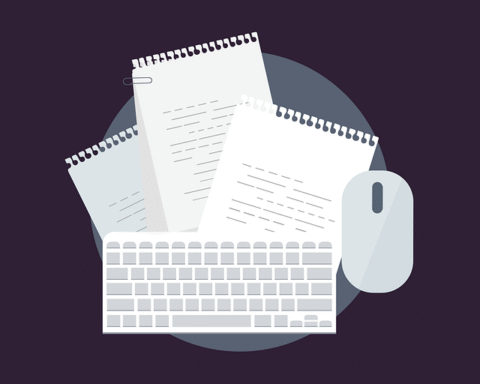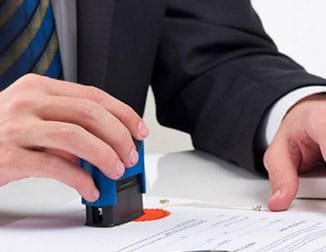MOFA attestation, or Ministry of Foreign Affairs attestation, is a crucial legal process that validates the authenticity of your documents for international use. Whether you’re planning to work abroad, study in a foreign country, or settle overseas, this step is mandatory for document verification. MOFA attestation ensures that your certificates, such as educational degrees, birth certificates, or marriage certificates, are officially recognized by the foreign government or embassy.
When Do You Need MOFA Attestation?
MOFA attestation becomes a necessity when you’re dealing with cross-border formalities. If you’re applying for a work visa, student permit, or family sponsorship, foreign authorities will likely demand validated documents. This step confirms that your submitted documents are genuine and approved by relevant home authorities. Countries in the Gulf Cooperation Council (GCC), including the UAE and Saudi Arabia, have particularly stringent requirements. Therefore, without MOFA attestation, your documents might be rejected, delaying or even halting your migration process. Recognizing when you need this step can save you time and avoid unnecessary legal complications.
Key Documents Required for MOFA Attestation
To begin the MOFA attestation process, it’s essential to gather the correct documents. Common certificates include academic degrees, diplomas, birth certificates, marriage certificates, and employment-related papers. Each document type must first go through a series of prior attestations from local authorities. For example, an educational certificate usually requires attestation from the educational board or university, followed by the Higher Education Commission and then the Ministry of Education. Only after these levels is it ready for MOFA attestation. Presenting all required originals and copies ensures a smooth, delay-free experience.
Step-by-Step Breakdown of the MOFA Attestation Process
The MOFA attestation process follows a strict, hierarchical structure. First, your document must be notarized by a public notary or certified authority in your home country. Next, it proceeds to the respective governmental body such as the Ministry of Education for academic records. After this stage, it is submitted to the Ministry of Foreign Affairs of your country. Once verified, it is forwarded to the embassy of the destination country. Finally, MOFA attestation is performed either in your home country or the foreign country where you plan to go. Every step must be followed correctly to avoid rejections.
Common Challenges Faced During MOFA Attestation
Despite being a standardized process, MOFA attestation can present numerous challenges for applicants. One common issue is document rejection due to incomplete prior attestations. Another hurdle is the lack of understanding regarding the specific requirements of different countries. Sometimes, improper formatting or language translation issues may also cause delays. Applicants may also struggle with long processing times or multiple visits to governmental offices. These setbacks can significantly affect your travel or relocation plans. Hence, it’s advisable to either thoroughly research the steps or seek professional help to ensure a hassle-free process.
Country-Specific MOFA Attestation Requirements
Different countries have their own unique guidelines when it comes to MOFA attestation. In the UAE, for instance, documents must be attested first by the UAE embassy in the home country and then by the UAE MOFA. In Saudi Arabia, the process involves the Saudi Cultural Mission before MOFA. Countries like Qatar, Oman, and Kuwait have similar but slightly varied protocols. Understanding these country-specific requirements is vital to avoiding rejection and ensuring your application moves forward without issues. It’s wise to consult with an expert who understands the nuances of each country’s process for added assurance.
Why MOFA Attestation Matters for Legal and Professional Use
MOFA attestation is not merely a formality—it has direct implications for the legal recognition of your documents in a foreign jurisdiction. Without it, your qualifications may not be acknowledged by foreign employers, universities, or government agencies. For professionals, it can delay job onboarding or cause contract cancellations. For students, universities might not allow course registration. In legal cases, unverified documents may be considered invalid. Hence, this attestation plays a pivotal role in protecting your personal and professional interests while abroad, ensuring your paperwork holds the legal weight it requires.
How to Speed Up the MOFA Attestation Process
There are several ways to make the MOFA attestation process more efficient. First, prepare all your documents in advance and double-check for completeness. Make sure you have the original and at least two photocopies of each document. Second, learn the attestation sequence required in your specific case. This avoids repeated visits and delays. Third, consider using authorized agents or professional services specializing in document attestation. These agencies are well-versed with the protocols and often have fast-track access to various departments, helping you save valuable time and effort during the attestation process.
Digital Advancements in MOFA Attestation Services
With the rise of digital governance, many countries have now started offering online MOFA attestation tracking and application services. Governments are integrating e-portals where you can submit documents, pay fees, and even track progress. This digital shift reduces the need for in-person visits and paperwork handling, making the process more transparent and efficient. Some embassies and consulates also provide e-attestation options. These innovations help simplify a traditionally complex process, making it more user-friendly and accessible for everyone—especially for those who are unfamiliar with bureaucratic procedures.
Tips to Avoid Rejection During MOFA Attestation
One of the most frustrating parts of the attestation process is facing rejection. To prevent this, always follow the exact order of attestation as required. Check for any discrepancies in your documents, such as mismatched names, incomplete dates, or errors in the seals or stamps. Use only original documents where required and avoid submitting damaged or tampered certificates. Ensure translations (if applicable) are done by certified translators. Lastly, stay updated with the latest guidelines from the embassy or MOFA website of your destination country. These precautions can significantly increase your chances of approval.
Conclusion
MOFA attestation is a vital step in making your documents internationally valid. From employment and education to family visas and business expansion, having your paperwork attested ensures a smooth and legally sound process in foreign countries. However, due to its complex, multi-step nature, handling MOFA attestation alone can be challenging. That’s where expert services like Online Attestation come into play. With a deep understanding of regional protocols and strong liaison networks, they help ensure your documents are attested efficiently and correctly—saving you both time and stress.








